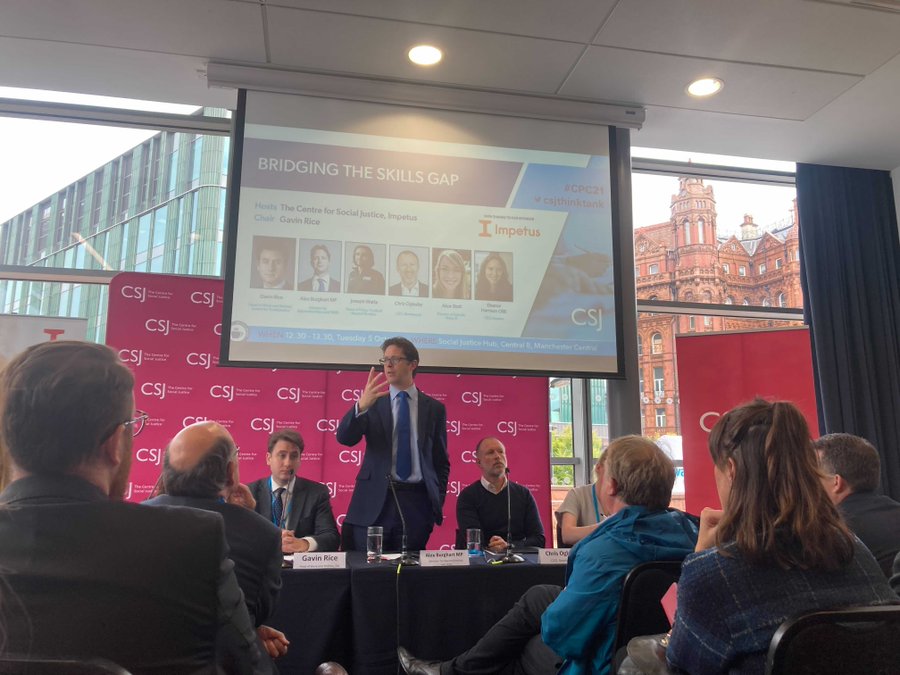The Conservative Party Conference was a great return to face-to-face events. An optimistic, exciting atmosphere and a great opportunity to finally meet those who I have been working with over the last few months in person.
There was an undeniable optimism suffusing conference, based around the message ‘build back better’. Hopefully, this positive and dynamic atmosphere creates an environment under which the government’s strategies can flourish.
Fringe events in the data and artificial intelligence space focused on key themes. The first was the recent investment from government. The number of research places in AI have doubled and the number of additional Turing World-Leading Researcher Fellow positions will increase the sectors’ ability to ensure we build the right skills for our ever-increasing digital future economy.
A second theme was representation. Following concerns around the representation from all backgrounds in the industry, ministers were keen to highlight that these exciting new opportunities will aim to benefit disadvantaged young people and provide greater openings to get involved in the world of data and AI. Fulfilling new policies focusing on innovative technology supporting jobs for the next generation, the Chancellor announced 2,000 new AI scholarships to ensure that these openings are provided to all areas of society.
A third theme was the potential of AI to boost the UK economy. After recent strategy announcements from DCMS to boost corporate adoption of AI technologies, ministers emphasised the economic potential of AI and announcements were made to build up the UK’s already world leading capabilities in this sector. The launch of a new national programme and approach to support research and development is expected to promote collaboration between researchers and boost the country’s AI capabilities, whilst encouraging business and the public sector to fully adopt related technologies. Pleasingly, ensuring a workforce of employees adopting the necessary skills to harness the increasing potential of artificial intelligence seemed to be a high priority on the agenda.
One area of adoption that was a focus at conference is the use of AI to revolutionise the healthcare system, with perceived benefits ranging from prevention to diagnosis and treatment. However, concerns were raised around how we enable the NHS to reap the technological advancements to benefit diagnostics, prevention and level of service delivery to patients, whilst prioritising the transparency, accountability and bias-free nature of the algorithms that we rely on.
Furthermore, digital inequalities risk stalling the benefits health technology can bring. To ensure that everyone in society is able to benefit from the increased use of technology and data, investment in essential digital skills is imperative. The past eighteen months have demonstrated that technology is now more vital than ever in allowing us to maintain social contact, jobs and for maintaining and developing a sense of community. In spite of its globalist links, hopefully the build back better agenda will mean building back better for everyone, particularly those who have suffered disproportionately due to lack of digital skills and access over the past year and a half.





